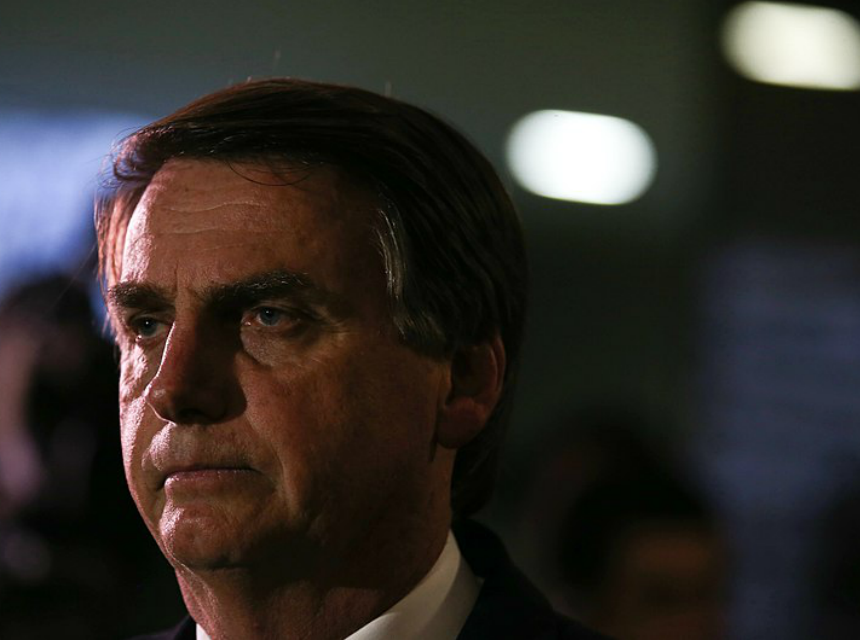Jair Bolsonaro, a previously marginal, right-wing politician, officially kicked off his presidential campaign this week. Well-known in Brazil for tough and often controversial statements, the 63-year-old candidate for the Social Liberal Party has become the surprise leader in national polls ahead of the first-round vote on 7 October. Eurasia Group Brazil expert Filipe Gruppelli Carvalho explains how Bolsonaro fits into the shifting landscape of politics in Latin America's largest country.
Who is Jair Bolsonaro?
A member of Brazil's lower house of congress since 1991, Bolsonaro is a former captain in the army who consistently praises the military regime that ruled the country from 1964-1985. His rhetoric appeals to a right-wing, Christian base of voters, not only in his home state of Rio de Janeiro and the conservative midwest of the country, but increasingly across all regions. Bolsonaro champions patriotism and traditional family values and has taken an increasingly hardline stance on public security. He recently said that a police officer
“who does not kill is not doing his job.” He has promised to
make guns more accessible to the general population for the purposes of self-defense.
Bolsonaro's tough talk resonates with a large segment of the population that has grown angry with the country's political class over rampant corruption and violence—
there are about 60,000 homicides per year in Brazil. The country is slowly and painfully digging out from a deep recession and a newly ascendant middle class is frustrated with these endemic problems. But Bolsonaro is a polarizing figure with many detractors. In addition to his deeply conservative stances on security and social policies, he is prone to making
inflammatory remarks about women, minorities, and members of the LGBT community.
What are his chances of winning?
Bolsonaro's loyal base of support and his lead in
polling scenarios without former president Luiz Inacio Lula da Silva (who was jailed in April and is unlikely to be permitted to run for office) make him the most likely contender to make it to the second round of the presidential election on 28 October. But his chances of victory would depend on who he faces then. They would improve against someone who also has significant liabilities, such as a candidate for the leftist Workers' Party, which has been tarnished by corruption scandals. They would worsen in a match-up against former senator and Sustainability Party candidate Marina Silva, who would be able to capture much of the moderate and leftist vote in a contest with Bolsonaro. The far-right politician would probably be at a slight disadvantage in a runoff against the leftist Ciro Gomes or the more centrist, establishment candidate Geraldo Alckmin, a former governor of the state of Sao Paulo.
The race remains open and much could change in the coming months. But Bolsonaro would get a further boost if new corruption accusations emerge against Alckmin or Workers' Party figures. He would also benefit from new violent flare ups in Rio de Janeiro or other hotspots.
What should we expect if Bolsonaro wins?
Putting the Brazilian economy on a stable footing is highly dependent on the continuity of President Michel Temer's reform agenda, and on this front Bolsonaro has sent mixed signals. The candidate has named Paulo Guedes, a highly regarded banker and economist, as his economic adviser. But Bolsonaro has backed away from some of Guedes's bolder proposals such as privatizing state assets in the agricultural and utilities sectors. Furthermore, pushing needed overhauls in spending rules through congress would require Bolsonaro to negotiate with establishment parties, something he has been loath to do in the past. In fact, the maverick politician has pledged he would break with the practice of doling out political appointments to parties, something that has been viewed as essential to smooth coalition management. Instead, he has promised to nominate military generals for ministerial posts, a move his supporters believe would help reduce political patronage and corruption, but one that evokes unpleasant memories of the military regime for much of the population. Increased polarization and less effective governance could result.

 Brazilian presidential candidate Jair Bolsonaro speaks at a press conference in Brasília | (Fábio Rodrigues Pozzebom via Agência Brasil)
Brazilian presidential candidate Jair Bolsonaro speaks at a press conference in Brasília | (Fábio Rodrigues Pozzebom via Agência Brasil)